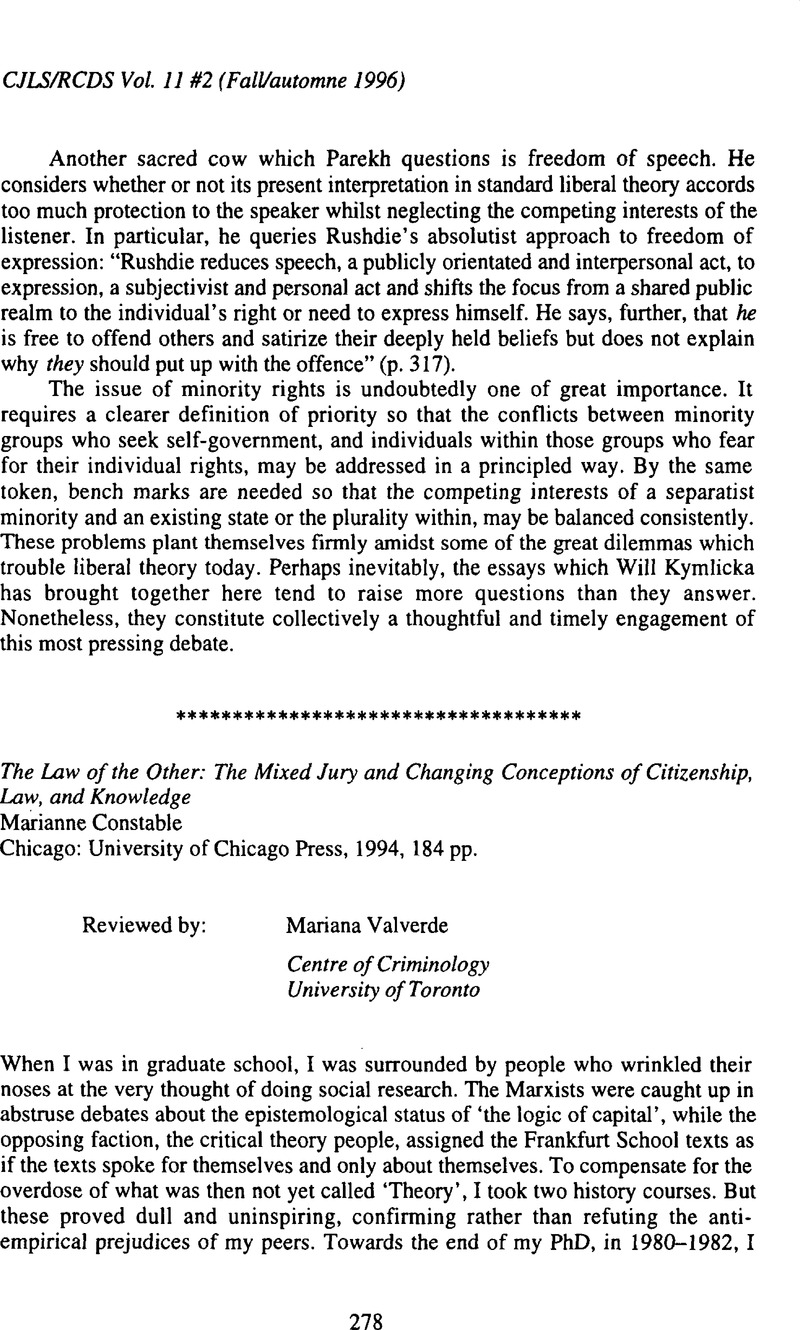No CrossRef data available.
Published online by Cambridge University Press: 18 July 2014

1. See her reply to the critics in Constable, Mariane, “Genealogy and Jurisprudence: Nietzsche, Nihilism and the Social Scientification of Law” (1994) 19 Law and Social Inquiry 625.Google Scholar
2. She never mentions that women were, even in the happy days before the nation state, consistently excluded from juries. Mentioning this would have forced her to qualify her nostalgic evocation of ‘community’ rather severely; but I suppose she would dismiss my remark about gender exclusion as a typically sociological remark!
3. Constable identifies ‘persons’ with pre-modern community-based law, and ‘individuals’ with modern (or as she would say, sociological) law (p. 146). My knowledge of legal history goes back only to the 19th century, but I somehow doubt that ‘person’ was a key building block of pre-modern law. ‘Persons’, it seems to me, can only emerge with the breakup of the feudal system of status-specific identities. Before the end of feudalism there were ‘souls’, as recorded not only in religious records but also in censuses, but not, as far as I know, ‘persons’.
4. Constable, supra note 1 at 551. This article is followed by several commentaries and Constable's rejoinder to the critics. I found Austin Sarat's comment particularly helpful.
5. Ibid. at 562.
6. Deleuze, Gilles, Nietzsche and Philosophy (New York: Columbia University Press, 1983).Google Scholar
7. Sarat, Austin, “Leading Law Into the Abyss: What (If Anything) Has Sociology Done to Law?” (1994) 19 Law and Social Inquiry 553 (Commentary on Constable).Google Scholar
8. “Thinking Non-sociologically About Sociological Law” (Reply to the Comments), supra note 1 at 635.